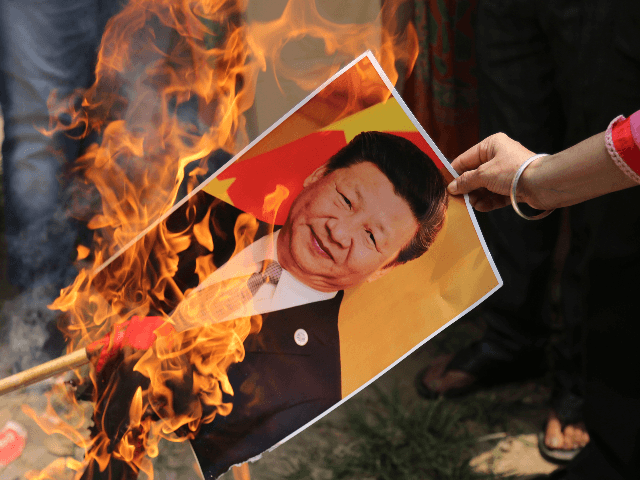Contrary to China’s belligerent assertions that India is only shooting itself in the foot by boycotting Chinese products after a deadly border clash in the Himalayas last month, a Bloomberg News report on Tuesday argued that India’s ban of Tik Tok and 58 other major Chinese smartphone apps could be the beginning of the end for China’s rise as a global tech power.
The Bloomberg piece argued that the big danger for China is that other countries might follow India’s lead, especially if a blockade against Chinese competition helps Indian manufacturers thrive.
It probably will, because decades of globalist rhetoric notwithstanding, China has employed precisely such “protectionist” barriers against foreign competition to nourish the explosive growth of its tech industry. The tech giants of the Western world, such as Google, Facebook, and Twitter, are largely frozen out of Chinese markets, allowing Chinese companies such as Alibaba and Tencent to grow into titans.
India’s tough new approach to trade with China largely mirrors the approach China has been taking with everyone while mouthing platitudes about “win-win cooperation” to easily bamboozled globalist politicians and business leaders.
Bloomberg and its quoted sources argued that China might have picked the wrong moment to provoke the rest of the world into abandoning globalist fantasies and giving Beijing’s “techno-nationalism” a try, since a great deal of Chinese investment money was lining up behind efforts to expand into fast-growing markets such as India’s telecom industry. Those markets could now offer more opportunities for U.S. and European competitors and investors.
India has regional strategic reasons to close its markets to Chinese goods, while the rest of the world is learning painful lessons about the dangers of opening markets to Chinese influence, not least of which is the Wuhan coronavirus disaster.
The U.S. campaign to persuade European allies about the dangers of using 5G wireless networking equipment from China’s Huawei, for example, is showing some promise after a few years of going nowhere. CNBC on Tuesday quoted Secretary of State Mike Pompeo’s argument that “the tide is turning against Huawei as citizens around the world are waking up to the danger of the Chinese Communist Party’s surveillance state.”
India seems especially wide awake at the moment, but CNBC noted that “more countries and mobile carriers are beginning to shun Huawei,” including big carriers in Canada – a country Beijing assumed it had thoroughly cowed into submission until now, but between the coronavirus horror and China taking Canadian citizens hostage, the limits of the Trudeau administration’s patience might be in sight.
Bloomberg’s review concluded by suggesting China’s smug assumptions that it can crush India’s economy at its leisure are incorrect, and the truth is that China “doesn’t have many great options to retaliate” against India’s boycotts.
“Bilateral trade is heavily weighted toward Chinese exports to India. Attempts to hurt India economically could blowback on Chinese companies,” as a Eurasia Group analysis explained.
A few key industries could quickly prove to be revealing tests of India’s will. As the Tribune of India reported on Thursday, the Indian pharmaceutical industry is heavily dependent upon ingredients sourced from China. India needs at least five years to develop competitive indigenous supplies. In the meantime, it might be able to get what it needs from Europe at costs about ten percent higher than what Chinese suppliers are charging. It remains to be seen if India’s medical industry will be willing to pay ten percent more for vital pharmaceutical components to buy independence from the Chinese Communist Party.
The Diplomat on Wednesday suggested it might, since India has a fairly solid history of sticking with boycotts, particularly when resentments have been percolating for as long as they have against China. Even Gandhi participated in a boycott in the 1930s.
The current boycott movement scored a big win with the smartphone app ban and appears to be gathering even more momentum, while the Chinese Communist Party goes from arrogant mockery of Indians for daring to consider a boycott to shrill complaints that the Indians are really doing it.

COMMENTS
Please let us know if you're having issues with commenting.